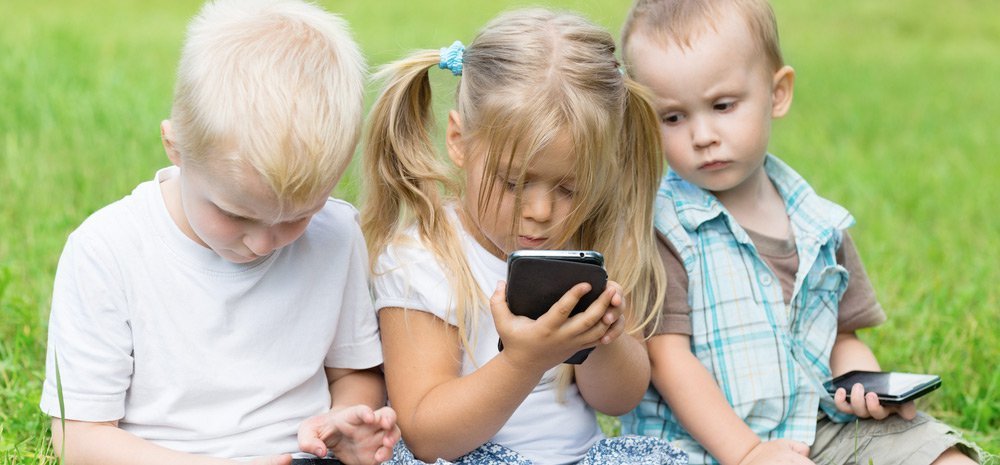My kids and I have a lot of long talks. We talk about things like who we want to be in the world, friendships, differences in beliefs and religions, personal responsibility, diversity, and qualities that are important to us. I love hearing their innocent and naturally developing views on these topics that become the foundation, I believe, for their happiness, their relationships, and their sense of living into their truest natures. I love hearing their minds and hearts expression through exploring what’s most relevant in their growing ideas of the world and of people.
Wednesday night, the subject of honesty came up at the dinner table. We were navigating a “little white lie…” in our house, getting clear on why it happened and what the consequences would be.
As many parents have experienced, this bit of dishonesty had to do with an IPad.
I have a love-hate relationship with everything “I-digital,” mostly because it’s having a significant—in some ways, devastating—impact on our children’s developing brains, their ability to regulate emotions, their attention, their mental health, and their ability to relate to people in the present moment. It’s having a similar impact on us all, but that is for another post! (Noted as I type this on my related mac book).
When our kids lie, as all of them will be at times (it’s their job to push against every boundary, every edge that we have), our response is key. Just like any relationship — we have to know how to respond effectively when we feel mistreated to increase the chance that we’re treated better in the future — we have a powerful opportunity in these moments to help our kids learn this valuable lesson, yet it can be incredibly difficult to slow down our brains enough to take it!
Honesty is a relational quality that doesn’t always come naturally. When we’re lied to, we have an internalized belief that we’ve been wronged and our brains can become reactive to the point that, through shaming, we contribute to an increase in our kid’s dishonesty in the future, rather than a decrease. And because this is parenting, it’s our responsibility to create the foundation and structure that will support our kids in not just “learning the lessons,” but in embedding honesty and integrity as the foundation of who they are—something human relationships don’t practice near enough of these days.
I heard a great quote the other day, though I don’t know whom to credit:
“Children who are not held accountable grow up to be adults who believe they can do no wrong.”
It’s our job to hold our kids accountable in ways that don’t shame them—that honor where they are developmentally, and honor their relationship to us—their models and guides.
It can feel like a mini brain explosion the first time we realize our kiddo has lied to us—one of those blatant lies, thought out, intentional. It’s easy to fall into a trap of what it means about us—their parents—we can feel a need to control the situation, or we can fall into our own shame. Our reptilian brains can go into fight or flight while we work to mitigate the emotional landslide threatening to override rational thought.
If we look at what research has shown to be absolutely necessary, though, in effective relational skills (which are essential in parent-child relationships), there are some things that desperately need to happen if we’re going to affect positive change.
Number One:
MINDFULNESS
We need to slow down. The reactive brain is powerful and quick—it’s built for survival, for protection from threat (and betrayal feels like a big threat), and fight or flight responses. The immediate reaction to our kiddos lie, if not monitored, can do some damage. Slowing down, however, takes some focused, intentional practice—“knowing this” is very different than “doing it” in the heat of the moment. It’s just like a new training regimen; we need consistent, focused practice, often with support to rewire our brain’s very natural and habitual responses.
We need to focus not on what our child did that was so wrong, but on how we feel in that particular moment. What are our emotions, thoughts, and, even deeper than that, what are our physiological responses—what’s happening on the level of sensation? When we have the capacity to simply notice what we’re feeling, before responding, we slow down our powerful reactive brains and we set ourselves up for a load of successful interactions. We also provide a valuable model for our kids.
Number Two:
COMPASSION
As difficult as it can be to have compassion when our children misbehave, it’s essential that we remember the fact that underneath the bad behavior, there’s a person—one we love desperately and one who is doing his or her best to learn all of life’s lessons, and looking to us to structure the container in which s/he is learning. It’s amazing when we can approach without judgment, get curious about what was happening, and give some understanding to our little ones, we make it safe for them to actually talk about what they did and why. And the more they trust us to hold that space, the more they will be able to share with us in years to come, things that might be painful, shameful, or embarrassing to share.
Compassion doesn’t mean that we rescue them, make it okay, or let them off the hook. It means we help them to explore the “why,” and what they could’ve done differently, and then we collaborate on an effective consequence that will support more congruent choices in their future—and we do this with love and understanding.
Number Three:
PARENTING
Seems an obvious necessity, right? We’re clearly parents or we wouldn’t be here. Sadly, I often witness parents, either in my practice or in my community, who seem to struggle in deciding whether to be a parent or a friend. I would assert that most of us would like to be both. Sometimes, however, our friend role gets in the way of being good parents, and our kiddos desperately need us to be parents first.
I love the pendulum shift in our culture that has brought us to paying more attention to our children’s emotions than to their behavior, as we did in previous generations. However, with that, our kiddos are struggling to find a solid structure on which they can depend to hold the natural chaos of their development! The rise in anxiety disorders in our kids and teens is unparalleled and so much of that is related to the lack of stable household environments and parents who are modeling emotional tolerance, resiliency, and flexibility.
Parenting—true parenting, including rules, structure, discipline, along with unconditional love—can be really uncomfortable sometimes. We all want our kids to like us, and want to spend time with us. We want to have positive, fulfilling interactions and relationships with them. But sometimes our actions geared at creating friend relationships undermine the effectiveness of our role as parents.
Setting boundaries, enforcing rules, providing consistent and thoughtful consequences—no one enjoys being a drill sergeant (well, there are those few…) and sometimes it may feel as if we need to embody that character for our kids to listen—these are just some of the qualities of a stable parent-child relationship. The other side of this foundation, of course, is our own ability to model these qualities. When kids feel and can trust in us to provide these consistently, they learn to gain a stable foundation from which they can naturally learn to navigate the impact of their own developing relational qualities.
We are powerful factors in helping to determine the qualities our children choose to practice. The responsibility and impact are incalculable. Pushing into the less comfortable moments in parenting, with some dedication to these practices, can provide some of the most fertile ground for our children to become mighty stewards of our collective humanity.
I would appreciate hearing your thoughts, reservations, questions, hopes, and some of your own personal stories!
For the Love of Your Life,
Angie



